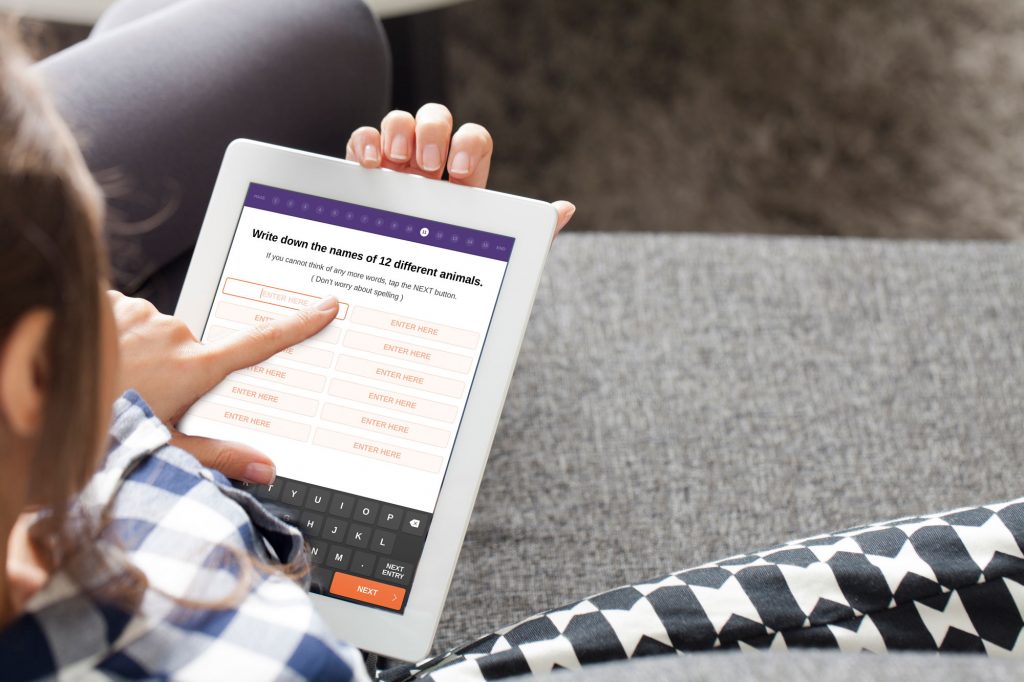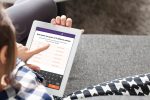Overcoming Access Barriers: Early Dementia Detection at Home

In the recent past, the only way to be evaluated for the early signs of Alzheimer’s disease and other forms of dementia was to complete a cognitive assessment at a medical professional’s office. The need to physically attend an appointment presents a major access barrier for many people. Access barriers are obstacles that prevent people from receiving proper health care. They are a serious public health problem that can take many forms. For example, physical disabilities and psychological impairments (like social anxiety disorder, aka SAD) could prevent a person from leaving their home for appointments. A barrier can also arise due to the unavailability of medical professionals in a specific area.
Access barriers are typically difficult to overcome, but there are also some “at-home” options for the detection or treatment of certain conditions (via homecare, blood collection services, mobile physiotherapists, and other specialists). This workaround was not available for those who desired to be tested for the early signs of dementia before the development of at-home self-assessment tools like the BrainTest app. Now, people can be professionally evaluated for the early cognitive symptoms of Alzheimer’s disease and other types of dementia at any time, in the comfort of their own home.
How BrainTest Breaks Down Barriers
The availability of at-home detection tools for early dementia symptoms has reduced the impact of multiple access barriers, and BrainTest is designed to take this accessibility to the next level. See the table below for examples of how the app offers solutions for people in a wide variety of circumstances.
Potential Access Barrier |
BrainTest Solution |
|
Physical Disability |
In addition to being a home-based test, thus eliminating the need to travel, the application includes features to help those who may have sensory disabilities like vision impairments or hearing loss. |
|
Psychological Illness |
The prospect of interacting with a medical professional can be extremely daunting for some people with severe anxiety or mood disorders. This can be a major problem for the detection of early dementia signs since a professional assessment is required. The BrainTest app does not make the test-taker interact directly with the evaluator and instead provides a recorded video of their assessment. |
|
Lack of Professional Availability |
Cognitive exams for the early detection of dementia can only be scored by trained professionals. This poses a problem for people in locations that are experiencing a shortage of healthcare workers. BrainTest utilizes its own professional assessors so that users do not have to worry about finding someone locally. |
|
Time Constraints |
A lack of available time can prevent someone from attending appointments, especially if they need to make travel and/or babysitting arrangements. The BrainTest process is quick and easy. It only takes about 15 minutes to complete a test and the results video (which you can watch on your own time) will be made available within 3 days. |
Fewer Barriers, More Benefits
Using the BrainTest app to be regularly evaluated for the early signs of Alzheimer’s disease and other dementias is a great way to overcome access barriers and to gain peace of mind about your cognitive health. Should some signs of early dementia be detected by follow-up assessments, obtaining an early diagnosis will ultimately prove to be extremely beneficial. it provides a variety of benefits, the most important of which may be more time to enjoy life, receive treatment, and make plans.
Screen early with the BrainTest App or the Web version (https://app.braintest.com) today.


